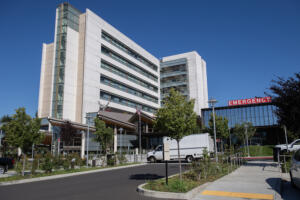It may be a drop in the bucket compared to the money flowing through national politicians’ coffers, but campaign finance is still a critical piece of local elections and can tell voters a lot about who might influence a particular candidate’s decision-making in the future.
With that in mind — and with ballots arriving in the mail this week — we’ve compiled campaign finance data on each of the candidates currently running for Camas-Washougal mayor, city council, school board and port commission positions.
Nearly all of the money involved in the local Nov. 7, 2017 General Election is going to Washougal candidates and primarily to Molly Coston and Dan Coursey, the two main candidates in line to be Washougal’s next mayor. Although they have raised similar amounts — roughly $13,000 for Coston and $12,000 for Coursey — there is a stark difference between each candidate’s campaign funders. For instance, Coston’s money tends to come in smaller increments from residents inside the Camas-Washougal area, while Coursey’s funds are coming in larger amounts from people who live in Vancouver and other parts of Clark County.
In light of recent breaking news from our sister paper, The Columbian, focusing on a $225,000 contribution from Vancouver Energy, the entity behind the proposed Tesoro-Savage oil terminal, to Port of Vancouver District 1 candidate Kris Greene, it is worth noting that money connected to the Vancouver Energy-funded group known as the Washington Coalition for Energy Independence (WCEI) is also filtering into the local Washougal mayoral race.
Candidate Dan Coursey has, so far, received at least $1,500 from members of the WCEI and their spouses. If approved, the Vancouver Energy project would bring oil trains carrying 360,000 barrels of highly flammable Bakken crude oil through Camas-Washougal every day, en route to the proposed Port of Vancouver oil terminal. Washougal’s current mayor, Sean Guard, and the Washougal City Council have voiced official opposition to the oil terminal project.



